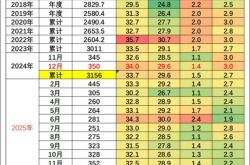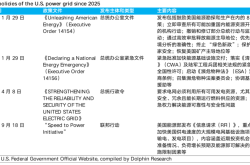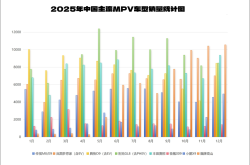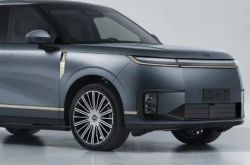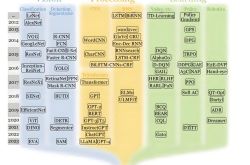Can the surging Geely ZEEKR pull Lynk & Co. along?
![]() 11/27 2024
11/27 2024
![]() 610
610
Author/Xiong Yuge
Editor/Ziye
After a year of rapid growth, Geely ZEEKR has released its new performance report.
On November 14, Geely ZEEKR released its third-quarter financial report for 2024. The report shows that in the third quarter of 2024, Geely ZEEKR recorded revenue of RMB 18.36 billion, a year-on-year increase of 30.7%, gross profit of RMB 2.942 billion, a year-on-year increase of 28.5%, and a net loss of RMB 1.139 billion, a year-on-year decrease of 21.7%.
Key financial highlights for the third quarter of Geely ZEEKR, sourced from the financial performance report of listed subsidiaries disclosed by Geely to the Hong Kong Stock Exchange
On the same day, Geely Automobile, Volvo Cars, and Geely ZEEKR successively announced that Geely ZEEKR and Lynk & Co. would merge.
During the earnings call, An Conghui, President of Geely Holding, Chairman of Geely Automobile Group, and CEO of Geely ZEEKR, summarized Geely ZEEKR's achievements and announced that the merger of the two brands would help reduce costs and expenses for Geely ZEEKR, promising to achieve breakeven under Hong Kong Accounting Standards this year.
As the fourth new energy vehicle (NEV) enterprise to go public in the United States, Geely ZEEKR, which was listed on the New York Stock Exchange on May 10, 2024, earned the title of "fastest IPO NEV enterprise in history" in just three years. If it can achieve breakeven in 2024, Geely ZEEKR will also become the "fastest growing NEV enterprise to reach breakeven."
However, on the other side of this merger, Lynk & Co. has long lost its early glow as a luxury online celebrity brand. Over the years, it has struggled to achieve stable sales in the quagmire of NEV transformation, making the merger a significant challenge.
Can the surging Geely ZEEKR pull Lynk & Co. along?
1. After a year of rapid growth, Geely ZEEKR is on the verge of profitability
If Geely ZEEKR's performance before and after its IPO can be described as a "sprint," then the third quarter of 2024 may be the point where profitability is within sight.
Geely ZEEKR's third-quarter sales, sourced from the financial performance report of listed subsidiaries disclosed by Geely to the Hong Kong Stock Exchange
In the third quarter of 2024, Geely ZEEKR set a new record with 55,003 vehicle deliveries, a year-on-year increase of 51%. Among them, 25,049 vehicles were delivered in October, also setting a monthly delivery record with a year-on-year increase of 92%. The new model, the Geely ZEEKR 7X, delivered over 20,000 units within 50 days of its launch in the third quarter.
Notably, in the third quarter of 2024, Geely ZEEKR achieved quarterly breakeven under Hong Kong Financial Reporting Standards for the first time.
During the 2023 performance meeting, An Conghui stated that Geely ZEEKR strived to turn a profit under Hong Kong Financial Reporting Standards in 2024 and set a target annual delivery volume of 230,000 units.
During the third-quarter earnings call, An Conghui revealed that Geely ZEEKR's average transaction price per vehicle reached RMB 300,000 in the third quarter, firmly establishing itself in the high-end market. By the end of October, Geely ZEEKR had delivered nearly 170,000 vehicles, a year-on-year increase of 82%, with sales exceeding 20,000 units for several consecutive months, ranking first in domestic high-end pure electric vehicle sales.
Regarding the 2024 target, he reiterated: "We are committed to achieving breakeven under Hong Kong Accounting Standards this year." "We are fully confident in achieving the annual delivery target of 230,000 units. In the next two months, Geely ZEEKR will challenge a new brand record of delivering over 30,000 units per month."
It is not difficult to see that the increase in vehicle deliveries, strong sales of new products, and an increase in the average selling price per vehicle were the main drivers behind Geely ZEEKR's "profitability in sight" in the third quarter.
Of Geely ZEEKR's total revenue in the third quarter of 2024, automotive sales revenue amounted to RMB 14.4 billion, a year-on-year increase of 42% and a quarter-on-quarter increase of 7.2%, providing the primary momentum for Geely ZEEKR's revenue growth.
The financial report stated that the year-on-year increase was due to increased new product deliveries, partially offset by lower average selling prices resulting from changes in product mix and pricing strategies between quarters; the quarter-on-quarter increase was mainly due to the launch of the new Geely ZEEKR 7X model in the third quarter and an increase in the average selling price of products.
If Geely ZEEKR can achieve breakeven in 2024, it will become the "fastest growing NEV enterprise to reach breakeven." In comparison, Tesla and NIO took 20 and 8 years, respectively, to achieve profitability in 2020 and 2023, while XPeng has yet to turn a profit.
The direct reason behind Geely ZEEKR's "swift action" is its excellent cost control abilities and the success of multiple popular automotive products. The fundamental reason stems from the support of its major shareholder, Geely.
With Geely's support, Geely ZEEKR has not only formed a diversified business structure focused on vehicle sales, battery and other component sales, research and development, and other services, continuously infusing capital into itself when its products were not yet successful, but has also leveraged Geely's NEV technology, industry experience, brand influence, and automotive production capacity to quickly introduce mature automotive products to the market.
Changes in Geely ZEEKR's gross vehicle margin, sourced from Geely ZEEKR's official WeChat account
In the third quarter of 2024, Geely ZEEKR's gross vehicle margin continued to rise, reaching 15.7% in the third quarter.
Gross vehicle margin is a highlight for Geely ZEEKR and the key to turning a profit for NEV enterprises. For comparison, in the second quarter of this year, Geely ZEEKR's gross vehicle margin was 14.2%, while NIO and Tesla's margins were 18.7% and 18.5%, respectively, and XPeng's margin was only 6.4%.
When a "well-founded" NEV enterprise can capture the market and continuously launch popular new products, it undoubtedly signifies that "scale effects" are imminent, along with a period of robust growth.
Geely ZEEKR's monthly sales in 2024, sourced from Chezhujia
At the beginning of 2024, Geely ZEEKR changed its previous pace of infrequent new product launches, entering a period of intensive product releases. It continuously delivered new products such as the 2024 Geely ZEEKR 001, Geely ZEEKR 7X, Geely ZEEKR MIX, 2025 Geely ZEEKR 001, and Geely ZEEKR 007, rapidly deploying in various NEV segments.
Under this "sprint," sales figures are tangible. In 2024, Geely ZEEKR's monthly sales frequently surpassed historical highs, with growth clearly visible. Currently, Geely ZEEKR is sprinting towards the profitability threshold.
2. Why does Lynk & Co. need Geely ZEEKR's support?
Concurrent with the third-quarter financial report, the "big move" of the merger between Geely ZEEKR and Lynk & Co. also emerged.
On November 14, Geely Automobile, Volvo Cars, and Geely ZEEKR successively announced, confirming industry rumors in November.
In summary, through its indirectly wholly-owned Chinese subsidiary, Zhejiang Geely ZEEKR, Geely ZEEKR acquired a 20% stake in Lynk & Co. from Geely Holding and a 30% stake from Volvo Cars for RMB 3.6 billion and RMB 5.4 billion, respectively. Subsequently, Geely ZEEKR will also subscribe to new registered capital of Lynk & Co. for RMB 367 million to obtain a 1% stake.
These changes are expected to be completed around the first quarter of next year. After the transaction is completed, Geely ZEEKR will hold a 51% stake in Lynk & Co., and Ningbo Geely, a subsidiary of Geely Holding, will continue to hold a 49% stake. On the same day, under Geely's strategic integration policy, Geely Holding also announced the transfer of an 11.3% stake in Geely ZEEKR to Geely Automobile for RMB 5.835 billion, increasing Geely Automobile's stake in Geely ZEEKR to approximately 62.8%.
In 2021, with funding from Geely Automobile and Geely Holding, Lynk & Co.'s pure electric vehicle division became independent, which was the precursor to Geely ZEEKR. Now that Lynk & Co. has been taken over by Geely ZEEKR, it is inevitable to feel a sense of regret. As Geely ZEEKR sprints ahead, successfully goes public, and becomes Geely's primary strategic focus, why has Lynk & Co. gradually declined?
If the merger of Geely ZEEKR and Lynk & Co., two important brands under Geely, marks the end of Geely's "era of expansion" characterized by frequent acquisitions and brand incubation, then the establishment of Lynk & Co. was the most critical step in the early stages of this era.
In 2010, Geely, which was only 13 years old at the time, acquired the century-old luxury automotive brand Volvo Cars for US$1.8 billion in a "snake swallowing an elephant" deal, marking the first step for this then-affordable brand to enter the high-end and luxury automotive product segment.
After integrating Volvo Cars' and Geely Automobile's advantageous resources, Geely and Volvo jointly established Lynk & Co. in 2017, with Geely Automobile holding a 50% stake, Volvo Cars holding a 30% stake, and Geely Holding holding a 20% stake.
As one of the few high-end brands among domestic automotive brands at that time, Lynk & Co. possessed multiple high-end technologies from Volvo and a mature sales system from Geely Automobile, earning it the moniker "affordable Volvo" among consumers and experiencing a continuous rise in sales. From 2018 to 2021, Lynk & Co. experienced a phenomenal growth period, with annual sales of 120,400, 128,000, 175,000, and 220,500 units, respectively.
However, amidst the wave of NEVs, Lynk & Co., which primarily focuses on fuel vehicles, began to show signs of decline. In 2022, Lynk & Co.'s annual sales were 180,100 units, marking a decline. For over a year, Lynk & Co.'s sales remained lackluster. In 2023, Lynk & Co. completely ceased R&D on pure fuel vehicle models, deciding to launch at least two NEV models each year to fully transition to NEVs.
In the second half of 2023, through comprehensive upgrades to its LYNK OS N operating system, the debut of the Flyme Auto in-car system, and the release of the NEV model Lynk & Co. 08, Lynk & Co.'s monthly sales gradually rebounded, surpassing 25,000 units by the end of the year.
Lynk & Co. 08, sourced from Lynk & Co.'s official website
However, entering 2024, under the impact of new models such as Xiaomi SU7 and Geely ZEEKR 007, Lynk & Co.'s sales have plummeted. Sales of the NEV model Lynk & Co. 08 have rapidly declined, with older fuel vehicle models Lynk & Co. 03 and Lynk & Co. 06 once again shouldering the burden. Subsequently, with significant price reductions for Lynk & Co. 08 and the launch of Lynk & Co. 07 EM-P, Lynk & Co. has once again shifted to a sales structure dominated by NEV models.
Compared to the unstable Lynk & Co., Geely ZEEKR, a pure electric brand established in 2021, achieved steady growth during the years when Lynk & Co. was "struggling" and entered a sprint in 2024. It is not difficult to understand why Geely ZEEKR now controls Lynk & Co.
Comparison of sales trends between Lynk & Co. and Geely ZEEKR in recent years, sourced from Chezhujia
The reasons behind Lynk & Co.'s setbacks include not only its lag in NEV transformation but also three other factors: First, relying more on Volvo and self-developed technology, Lynk & Co. cannot immediately adopt Geely's cutting-edge hybrid technology in the NEV field; second, to avoid competition with Geely ZEEKR, Lynk & Co. is constrained in pure electric vehicle models; third, after fully entering the NEV market, the halo of the luxury fuel brand Volvo no longer shines, and Lynk & Co. needs to reprove its high-end capabilities.
An example is Lynk & Co.'s first pure electric model, the Z10, launched in September this year. Like the Geely ZEEKR 001, it is rooted in Geely's HAO architecture. However, to avoid competition with Geely ZEEKR, it deliberately distinguishes itself from Geely ZEEKR in terms of charging platforms and pricing, earning it the moniker "beggar's version of Geely ZEEKR 001" among consumers.
3. After the merger, how to truly achieve synergy is a challenge
How many obstacles must be overcome for the two brands to synergize?
The merger of two core brands under Geely, how to achieve synergy has become the most critical issue.
According to media reports, after Geely ZEEKR takes control of Lynk & Co., An Conghui, who managed Lynk & Co. at its inception, will comprehensively oversee and manage Lynk & Co. In terms of organizational structure, the Lynk & Co. brand will be retained, and different departments such as marketing and procurement will be integrated. Adjustments to R&D and product departments will be promoted by the end of this year and early next year.
According to Geely ZEEKR's disclosure, Geely ZEEKR and Lynk & Co. will maintain a dual-brand strategy, remaining relatively independent and distinct from each other to maximize market coverage. Geely ZEEKR is positioned as a global luxury technology brand covering the high-end luxury market, while Lynk & Co. occupies the global high-end NEV brand, targeting the mid-to-high-end market.
It is not difficult to see that the idea behind the merger of Geely ZEEKR and Lynk & Co. is more about meeting each other's needs, enhancing synergy, rather than comprehensively reintegrating all resources.
The advantage is that neither Geely ZEEKR's extended-range and hybrid actions nor Lynk & Co.'s foray into pure electric vehicles will be constrained by factors of intra-industry competition. Advanced technologies and sales systems can be integrated and shared, achieving "1+1>2."
For Geely, the merger of Geely ZEEKR and Lynk & Co. is a natural trend in the group's internal brand development under Li Shufu's "strategic focus" policy outlined in the "Taizhou Declaration." This has happened several times before: in October, Geely Auto's Geometry brand merged with Yinhe Auto, and in November, Radar Auto was integrated into Geely Auto.
For Geely ZEEKR, the question it should consider most is how to overcome obstacles, maximize its advantages, avoid disadvantages, and ultimately maintain overall sales growth.
During the third-quarter earnings call, An Conghui responded to multiple questions about the integration of Geely ZEEKR and Lynk & Co. He stated that the business reorganization of the two parties would help the new Geely ZEEKR cover 60% of the Chinese passenger car market and reduce the risk of intra-industry competition.
After the integration, the number of Geely ZEEKR and Lynk & Co. models will be further reduced, with distinctions made in vehicle size, powertrain, and pricing. They will share operational and R&D resources, combine after-sales and supply chain resources to reduce costs. In terms of structure, the intelligent driving system and smart cockpit hardware will be unified, while the software system can be independently operated.
Specifically, Geely ZEEKR will focus on pure electric mid-size vehicles and hybrid large vehicles; Lynk & Co. will focus on pure electric compact vehicles and hybrid mid-size vehicles. Among them, Geely ZEEKR will not adopt Lynk & Co.'s hybrid technology but will instead independently develop electric hybrid technology suitable for large vehicles, which will be used in SUV and MPV models.
An Conghui estimates that after the merger, "R&D costs and expenses for supporting departments can be reduced by about 10-20%. At the supply chain level, due to economies of scale and synergies, the bill of materials (BOM) cost for the entire vehicle can be reduced by 5-8%."",

